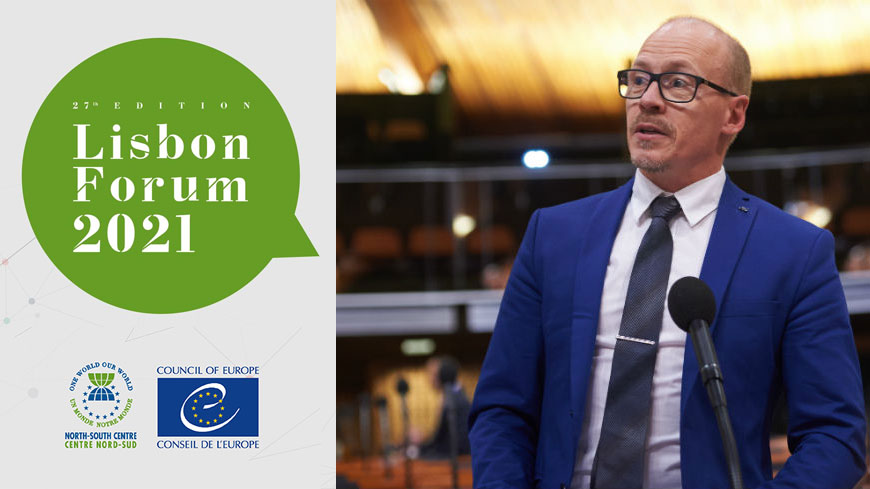“Misinformation and prejudice can easily spread online through unreliable content which circulates too much and too fast; this can cause polarisation of our communities and feed into mistrust between citizens at an incredible speed – all it takes is one tweet,” stressed Chair of the Congress Current Affairs Committee Thomas Andersson at the 27th Lisbon Forum “Intercultural Dialogue in the Infodemic era” held in Portugal and online on 9 and 10 December 2021. Conference participants sought to increase dialogue through discussions on media ethics, human rights, a democratic internet, global solidarity, and social justice.
“We see hatred towards certain religions, the rise of radical subgroups, sexist speech and sometimes incitement to violence on online platforms,” Mr Andersson said, pointing out that a highly urbanised and digitalised world is a double-edged sword which impacts our cities and towns. According to the Committee Chair, as polarisation and misinformation have a direct impact at the local level, the solution should also be local. “We, as mayors, city councillors and regional representatives, can empower our citizens to be more inclusive and to contribute to fighting radicalisation and extremism of all kinds,” he stated. Convinced that resilient societies are built from the bottom up, Mr Andersson stressed that “promoting social cohesion and inclusive societies must be one of the priorities of local and regional authorities everywhere, as an integral part of policies to develop local democracy”.
He referred in this regard to the Alliance of European cities against violent extremism set up by the Congress in 2015 to provide a platform where municipalities can share their experience on how to prevent radicalisation and extremism. The Congress also developed a toolkit on “Organising intercultural and interreligious activities” to help cities and regions to bring together different communities and combat hate speech and stigmatisation, providing information on legal resources, education and trainings as well as guidelines on how to organise intercultural activities. An inter-university project to combat fake news and hate speech affecting mayors and councillors is currently being implemented with the Congress support.
“Working with citizens, and not just for them, must guide our action if we are going to make progress in winning the war against fake news and hate speech,” he concluded.




